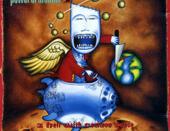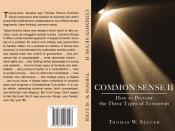In order to answer a question on whether psychology provides more information or insight about ourselves than common sense does, one must first seek to clarify and distinguish the differences between these two terms. What is Psychology? Psychology can be defined as "the science or study of the thought processes and behaviour of humans and other animals in their interaction with the environment." Common sense on the other hand, according to Charles G. Morris and Albert A. Maisto in Psychology: An Introduction. Tenth Edition, is "a collection of untested cultural assumptions and sayings that cover almost any situation."
Psychologists study processes of sense perception, thinking, learning, cognition, emotions and motivations, personality, abnormal behaviour, interactions between individuals, and interactions with the environment. In its close link with disciplines such as Anthropology and Sociology in its concerns with social and environmental influences on behaviour, Physics in its treatment of vision, hearing and touch; and Biology in the study of the Physiological basis of behaviour, it provides an in depth study of mind and action.
To highlight the point of psychology's major role in the comprehension of human behaviour and thought, the various subdivisions of psychology will be mentioned in order to provide the reader with an understanding of how each division or part thereof donates a systematical approach, providing knowledge about the human mind and behavioral patterns.
Developmental psychology is concerned with the processes of growth and change over the course of life, from the prenatal stage to death. This aspect helps us to understand through investigation and tested theory, the effects of chemical and biological components, age and activity and their effect on how we think and behave. Thus, this is linked to Physiological psychology which focuses on the body's neural and chemical systems and the effect of these on thought...



Balance
I felt that this essay weighed heavily on the common sense and could have mentioned more to do with how much research is done in psychology. Some fantastic points though, well done:)
0 out of 0 people found this comment useful.